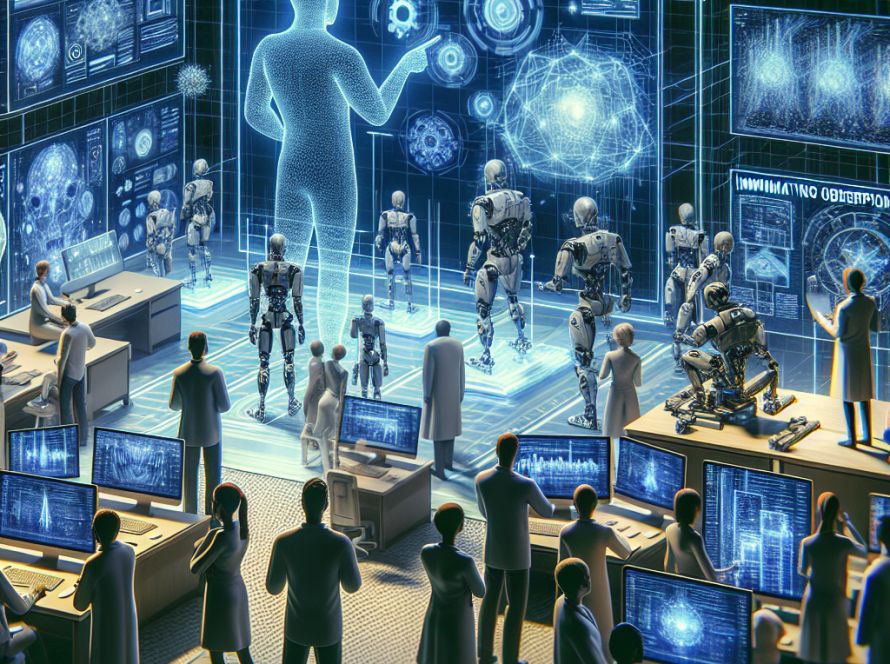This week in AI news, public trust in the technology continues to wane even as adoption rates rise. This distrust is partly due to alarmist views expressed by some industry sectors, with a report commissioned by the US government even going as far as to label AI an “extinction-level threat” to humanity.
In an exemplification of AI’s growing influence, a manipulated photograph of Kate Middleton caused a stir, reflecting society’s increasing sensitivity to AI-generated fakes. The gaming industry has embraced AI, leading to a potential strike from actors and voice artists unhappy about their jobs being taken over by AI. In the aviation industry, fighter pilots may find themselves gradually replaced by AI. Pentagon plans for AI-piloted mini fighter jets are in the offing, raising concerns about potential misuse and system glitches.
In the coding world, AI is poised to replace human programmers. CEO of Stability AI, Emad Mostaque, foresees a future without human coders as autonomous AI software like Devin can complete entire coding projects independently. This software will empower anyone to become a programmer.
AI tools like DeepMind’s AlphaFold have revolutionized the protein design process, raising crucial safety concerns. Consequently, researchers have proposed voluntary safety rules for AI protein design and DNA synthesis to prevent malicious use. These safety measures include using labs that screen proteins for danger before production.
Also using AI for safety, a team of researchers developed a benchmark for the likelihood of an AI system assisting in the creation of a bomb or bioweapon. This helps the AI “unlearn” dangerous knowledge while retaining useful information.
Breaking away from the traditional pattern of big data analysis, the Mayo Clinic’s “hypothesis-driven AI” generates scientific theories that can be validated with domain knowledge. This tool could be pivotal in predicting patient responses to cancer treatments and testing medical hypotheses.
In other news, NVIDIA is being sued by authors for the AI’s use of copyrighted works, Google’s new AI-focused Pixel 8 phone failed to run its latest smartphone AI models, and robotics foundation model RFM-1 now offers robots human-like reasoning capabilities.
In light of this week’s events, the public’s attitude towards AI is veering towards skepticism, with AI’s increasing role in daily life leading to more cautious interactions. The concept of AI-piloted fighter jets is an unnerving prospect, especially considering the implications of system glitches. The week ended on a positive note, with the lack of AI fake news suggesting progress in the fight against misinformation.


